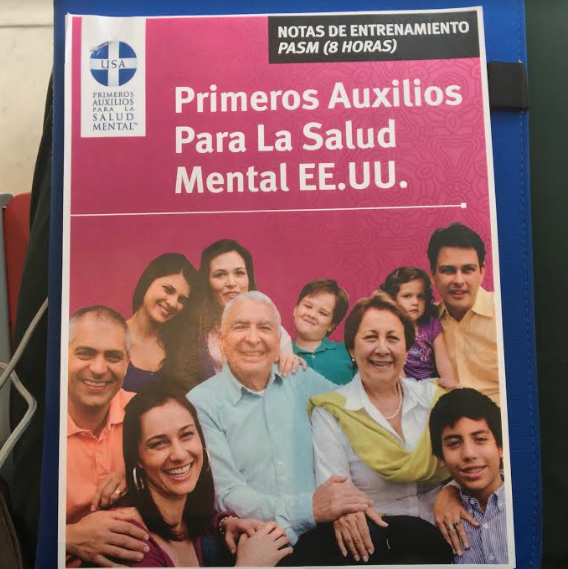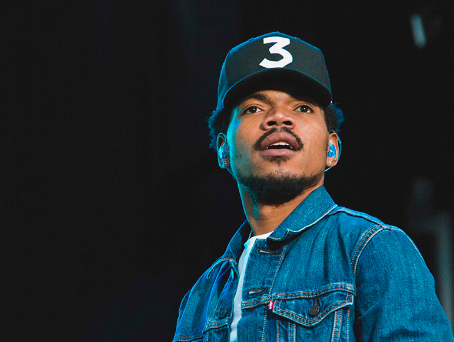THIS WEEK'S GOODNESS
"Started From the Blog, Now We’re Here: The Black Snob’s Danielle Belton Triumphs Over Mental Illness" [The Root]
"How Hip-Hop Therapy Is Helping Young Rappers Improve Their Mental Health" by Imade Nibokun [LA Weekly]
"Imagine a world where every MC who needed psychological support could write rhymes with a mental health care professional. Artists could talk with a trained hip-hop therapist to explore the emotional depth of their words. That's the idea behind the Hip Hop Therapy Global Institute, an organization founded by Bay Area social entrepreneur Tomás Alvarez III.
Alvarez began developing hip-hop therapy at Oakland youth-outreach organization Beats Rhymes and Life, which he co-founded in 2004. The organization's aim is to address what Alvarez saw as a gap between the privileged training and personal history of many mental health professionals and the lives of the disadvantaged young people they were attempting to treat."
"PTSD in black women needs attention, study of South Side group says" by Grace Wong [Chicago Tribune]
"Nortasha Stingley doesn't remember a lot about the weeks after her 19-year-old daughter was shot and killed nearly four years ago. All she could do was cry. All she wanted to do was scream.
After Stingley lost 40 pounds in a matter of weeks, her sister finally took her to see a doctor, and she was diagnosed with post-traumatic stress disorder."
"Therapists often discriminate against black and poor patients, study finds" by Carina Storrs [CNN]
"The current study found that therapists' response rate was low in general, with only 44% returning the call. In many cases, the therapist left a message saying he or she did not have availability: Only 15% of inquiries resulted in a therapist offering an appointment time.
Therapists were less likely to call back if the clients sounded black and working-class. Only 34% of black working-class individuals got a call back, compared with 49% of black middle-class and 51% of white middle-class individuals."
"On The Realities Of Being A Black Woman With Borderline Personality Disorder" by Christina Pungong [The Fader]
"I’ve never seen my mother cry. When I was younger I came to the conclusion that she was cold, but with time I realized this simply wasn’t true. I know my mother is emotional: I’ve seen her joyful, I’ve seen her furious, I’ve seen her excited and scared and even sad, I’ve just never seen her cry. I later grew up to understand that we live in a world that doesn’t grant black women vulnerability — and that black women everywhere suffer for it immeasurably. It is for this exact reason that I couldn’t admit to myself that I was ill for a very long time. "
"'Hi Stranger' Is A Weird, Relaxing And Life-Affirming Video You Need To Watch Right This Second" [Digg]
"The Busier You Are, The More Quiet Time You Need" by Justin Talbot-Zorn and Leigh Marz [Harvard Business Review]
"In a recent interview with Vox’s Ezra Klein, journalist and author Ta-Nehisi Coates argued that serious thinkers and writers should get off Twitter.
It wasn’t a critique of the 140-character medium or even the quality of the social media discourse in the age of fake news.
It was a call to get beyond the noise.
For Coates, generating good ideas and quality work products requires something all too rare in modern life: quiet."
"Drugs Don’t Cause Addiction: This Brilliant Animated Video Will Change Your View on Drugs Forever" by Sofo Archon [The Unbounded Spirit]
"Most people think that the reason why people become addicted to drugs is solely because of the drugs themselves. This, however, is far from the truth, as shown repeatedly by scientific studies on drug addiction."
"Self-Care and Black Intellectual Labor" by Claire Garcia [Black Perspectives]
"What does it take to produce black intellectual work? How do we ensure our own well-being within an institutional framework that has historically undervalued the contributions of men and women of African descent? What strategies must we utilize so that we can sustain satisfying careers in the Academy while maintaining our own health and sanity? These are critical questions that black scholars should be considering."
Are you a Black mental health professional? Do you do yoga, reiki, massage therapy, herbology, bootcamps, or crystal work? Alex is building a database of Black wellness professionals and practitioners. Be a pal and submit your info to be included in the directory.
Have a mental health-related article, video, event, or resource we should know about? Send it our way!














